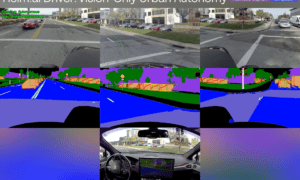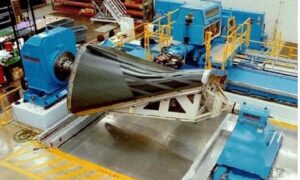Umrah is a deeply spiritual journey that millions of Muslims undertake each year to the holy cities of Makkah and Madinah. While the rituals and purpose of Umrah remain rooted in centuries-old tradition, the experience of performing it is rapidly evolving — thanks to the power of modern technology.
From digital visas to smart wearables, technology is revolutionizing the way pilgrims plan, travel, and perform Umrah. In this article, we explore how innovations are making the pilgrimage more accessible, organized, and secure for pilgrims around the world.
1. Online Umrah Booking Platforms
Gone are the days when pilgrims had to rely solely on local travel agents. Today, Umrah packages can be booked online with just a few clicks. Digital platforms and apps allow pilgrims to:
- Compare package prices and features
- Choose their preferred airlines, hotels, and transportation
- Access 24/7 customer support
This shift to online bookings provides greater transparency, flexibility, and convenience — especially for international pilgrims who want to plan ahead.
2. E-Visa System and Digital Documentation
Saudi Arabia’s introduction of the Umrah e-Visa has significantly streamlined the visa process. Instead of visiting embassies or consulates, pilgrims can now apply online, upload documents, and receive their visa electronically.
- Benefits include:
- Faster processing times
- Paperless documentation
- Easy verification through QR codes
This digital transition saves time and simplifies the travel experience, especially for those coming from countries with limited consular access.
3. Navigation and Location Services
Pilgrims often find it challenging to navigate the vast areas of Makkah and Madinah. GPS-enabled apps have made this easier by offering:
- Directions to nearby mosques, hotels, and restaurants
- Real-time maps of the Haram and other key locations
- Route suggestions during crowded times
Popular navigation tools — including Google Maps and Haramain train apps — help pilgrims stay on track without feeling overwhelmed.
4. Mobile Apps for Ritual Guidance
Performing Umrah correctly is essential, and many pilgrims turn to mobile apps for help. These apps offer:
- Step-by-step guides for Tawaf, Sa’i, and other rituals
- Audio and video instructions
- Duas in multiple languages
For first-time pilgrims, these tools are invaluable, providing real-time assistance and eliminating the fear of performing a ritual incorrectly.
5. Smart Wearables and Health Monitoring
Health and safety are a top priority — especially in large crowds. Smart wearable devices like bracelets and watches are being used to:
- Monitor heart rate and body temperature
- Track location to avoid getting lost
- Alert authorities in case of emergencies
During the COVID-19 pandemic, these devices also played a crucial role in contact tracing and health screening.
6. Crowd Management and Safety Technologies
Managing millions of pilgrims requires sophisticated crowd control systems. Saudi Arabia has invested heavily in technologies like:
- AI-powered surveillance cameras to monitor crowd movement
- Facial recognition systems at entry points
- Drones for real-time crowd oversight
These innovations help prevent stampedes and ensure a safe environment for all pilgrims.
7. Virtual and Augmented Reality (VR/AR) for Preparation
Virtual and augmented reality tools are gaining popularity for pre-Umrah training. These technologies allow users to:
- Take virtual tours of the Kaaba and other sacred sites
- Visualize the sequence of rituals before traveling
- Use AR overlays for direction and information on-site
This is especially helpful for people with physical limitations or for educational institutions preparing students for Umrah.
8. Future Innovations to Watch
The Kingdom’s Vision 2030 includes plans to make Umrah and Hajj even more technologically advanced. Future innovations may include:
- Blockchain for secure visa, identity, and health records
- AI assistants for personalized support during the journey
- Fully integrated Smart Pilgrimage Ecosystems
These developments aim to handle the growing number of pilgrims while enhancing spiritual focus and logistical ease.
Conclusion
Technology is playing a transformative role in the Umrah experience — from planning and preparation to safety and performance. While the rituals remain sacred and unchanged, the tools surrounding the journey have evolved to make it smoother, safer, and more accessible.
As a pilgrim, embracing these technologies doesn’t take away from the spirituality of Umrah — instead, it allows you to focus more on worship and less on logistics.
Read More From Techbullion

































